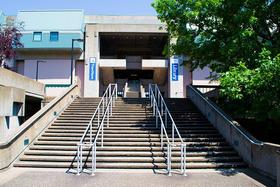Are you taking unnecessary classes at your community college? You may be able to skip certain prerequisite courses by simply taking placement tests and earning passing AP test scores. If you can qualify for just 20 hours of course credit through your testing, you stand to save an average of $3,000 in tuition costs. In addition, by testing out of these courses, you not only save money but can graduate or transfer early and enter into the job market more expeditiously.
This video suggests the easier AP classes to take in order to receive college credit.
How to Test out of College Classes
The purpose of placement tests is to determine whether or not a student has mastered the particular subject matter. While testing options will vary at each community college, all students should be able to take placement tests that will earn them course credits. For example, at Warren Community College in Michigan, students can "Accelerate their graduation from college by taking exams including Advanced Placement exams, the College Level Examination Placement tests, or the Warren County Community College Institutional Credit by Exam tests." Through these exams, students can earn 30 to 45 hours of course credit - without having to actually sit in class!
Students attending Warren Community College can take the College Level Examination Placement (CLEP) or can earn credits through alternative exams:
- CLEP - You can earn credit for college courses by taking CLEP exams, which are proctored by the College Board. Upon evaluation of the test scores, college officials can evaluate whether or not a student's CLEP performance is worthy of college credit.
- Institutional Exams - In addition to the CLEP exam(s), Warren students can "challenge" for credit in any course. Without needing to enroll in the course itself, students can simply take the institutional exam for the course. Should the student pass the exam, they will be awarded a passing mark on their transcript and obtain the appropriate credits.
Students attending Middlesex Community College, located in Bedford, Massachusetts, can also take advantage of testing opportunities on campus. At Middlesex, students can take specific exams outlined for their major. For example, if you are pursuing your Biotechnology degree, then you can take placement exams to opt out of your Algebra 2 and English Composition requirements.
This video offers suggestions on how to earn college credit in high school.
Earning College Credit with AP Coursework
In addition to on-campus testing opportunities, students can earn college credit while they are still in high school. Students who successfully pass their AP exams can apply their AP work towards college credit. To obtain these credits, you must submit a request through the Educational Testing Service to directly send your AP exam scores to your community college.
Currently, the College Board has approved AP exam opportunities for more than 30 subject areas, including:
- Art History
- Calculus
- English literature and language
- Chemistry
- Computer science
- Economics
- Environmental science
- European, World, and US history
- US Government
- Biology
- Physics
- Music theory
- Physics
- Psychology
- Statistics
- Studio art
- Languages, including Chinese, Japanese, Italian, French, German, Latin, and Spanish
What the test preparation firms say
One of the top test prep outfits, The Princeton Review offers this advice: "AP classes can boost your GPA and strengthen your college application. But the number of advanced courses you choose to take should depend on your academic interests and your schedule. Concerned you won’t be able to handle the tough concepts of an advanced course? We can help. Our AP tutors can give you a hand with your class work and get you ready for the test."
CollegeVine, another test prep firm, offers the following opinion about earning college credit by taking AP courses: "Many colleges offer college credit for students who receive certain scores on their AP exams. At selective schools, that’s typically a 4 or 5, though some schools may offer credit for a score of 3. Just make sure you look up their policies because most colleges only apply credit for select exams. In some cases, for example, you’ll receive credit for a 3 on AP Calculus BC, but not for a 5 on AP English Literature and Composition. In some cases, albeit rare ones, you could even save money on your college education, provided you earn enough AP credits that apply to your school and allow you to graduate early."
This video suggest 7 ways you can earn college credits in high school.
Other options
Besides taking AP courses in high school, you have a couple of other options to earn college-level credit. College Transitions states: "Too many talented students pass up opportunities to earn college credits during their high school years for just a tiny fraction of what they will pay later in freshman tuition. Understanding the options that may be available to you at your high school is step one. Step two is exploring the policies of each of your prospective colleges with regard to awarding post-secondary credits earned prior to matriculation. What follows is a look at the most common ways to accrue college credits while in high school including:
- Advanced Placement (AP) tests
- International Baccalaureate (IB)
- College Level Examination Program (CLEP) exams
- Dual enrollment
- Summer or Winter study sessions"
To find out if you are eligible for college placement testing options or AP college credit, make an appointment with your community college advisor. You may be able to save thousands of tuition dollars and dozens of in-class hours.
Questions? Contact us on Facebook. @communitycollegereview















